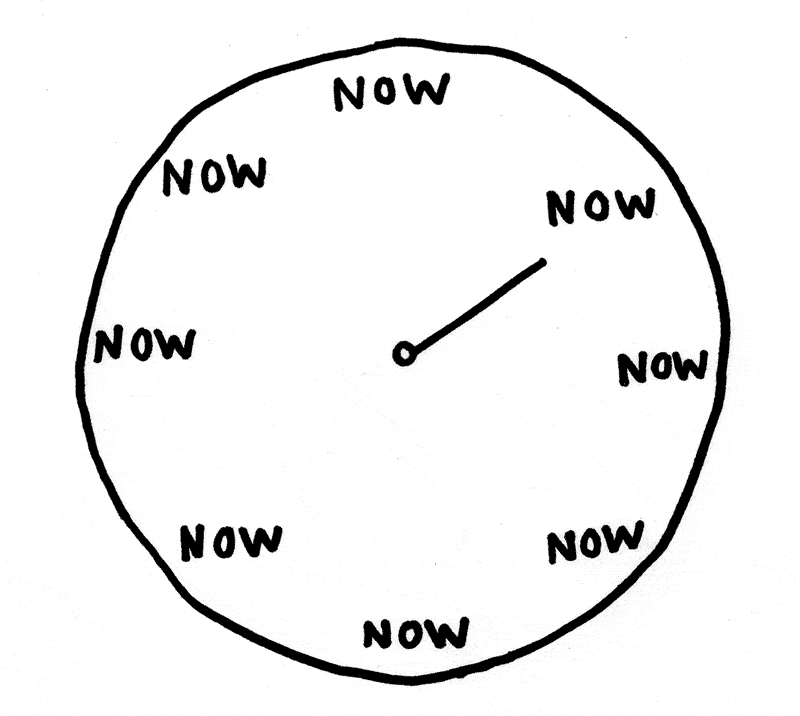We all love being lazy from time to time, and that’s perfectly alright, as long as it’s done in moderation. However, some of us are less disciplined than others, which means our “lazy” time spills over into our daily obligations. Writers, for instance, are extremely notorious for being lazy and prone to procrastination, which is perhaps best evident through their portrayal in the media. Fictional movie and TV characters such as Californication’s Hank Moody, or Secret Window’s Mort Rainey immediately spring to mind.
While this image is certainly exaggerated, a lot of writers could use some help when it comes to organizing their time and improving their creative output. Since writing is often seen as heavily dependent on bouts of inspiration and ideas, the writers’ approach to occasional dry spells or writer’s block would be to wait it out, and not do much in the meantime.
The good news is, not only can you make yourself more productive during those less-inspired periods, but you also can avoid them altogether, and it doesn’t require you to do anything revolutionary, other than making some tweaks to your usual approach and adopting some useful writing habits. No e-books, no magic pills, just 7 essential tips you can use to turn yourself into a writing machine you were supposed to be all along.
1. Write Down Your Ideas
As a writer, you are probably aware that great ideas are hard to come by. There are two ways you can deal with this. The first one would be to do some serious brainstorming, organize and collect your thoughts, and distill them down to ideas you can actually use. The second one would be to always write down those ideas which appear inside your mind at the most unexpected moments and situations.
Although it may seem like there is absolutely no way you’re going to forget about them, you probably will. You can fix this by writing them down using a piece of pen and paper, your smartphone, or specialized note-taking apps. Even though you may not use them right away, it’s great to have some of them in reserve.
2. Set a Daily Word Count
Making a decision to write more is commendable, but it only works in theory, because it’s pretty flexible. A better, smarter way of going about it would be to establish a minimum daily word count and fulfill that quota no matter what. Or, you can write for a certain number of hours. This is especially effective if you have a huge workload ahead of you, or if you are writing a novel.
The idea of tackling such a huge project can be scary, but if you break it down into smaller sections and write a little bit each day, by the end of the month, you will be surprised at how much you’ve gotten done. Make sure the goal is realistic: 500 or 1000 words a day should do fine in the beginning.
3. Start Writing at the Same Time Every Day
One of the reasons why you’re a writer is because you don’t do routines and constrictions, but that doesn’t mean you should avoid having any discipline and structure in your work. You can train yourself to be productive. Along with sticking to a certain word count, another way to make yourself more productive as a writer would be to start working at the same time each day. It will be hard at first, because you have to resist giving into the urge to give yourself and break and make an exception just that one time, which quickly snowballs into full-on procrastination.
4. Create Your Very Own Writing Space
If it’s possible, create a workplace for yourself inside your home that will allow you to focus on writing and nothing else, with no distractions that might hinder your progress. Keep your desk clutter-free and populate it with items that will inspire you. Make sure that it’s not your bedroom, the kitchen, or any room with a TV. If you find it too hard to concentrate within the comfort of your own home, give co-working communities a shot.
5. Limit Non-Essential Activities and Rituals
This doesn’t mean that the only thing in your life should be writing, but you can make more time for it if you drop some of the numerous activities which may not seem too time-consuming, but they add up to a significant chunk of time. For example, you can limit the number of hours you spend volunteering, or drop some unpaid writing projects you are currently involved in. Instead of soaking in the bathtub for an hour or two, take a quick shower. Avoid lengthy Netflix binges, watching several movies a week, or going out during business hours.
6. Follow Writing Blogs
There are countless blogs out there dedicated to writing and helping writers improve their writing skills, grammar, and productivity. Aside from gaining access to useful materials, such as articles, e-books, or webinars, you can also network with other writers and exchange ideas. Also, writing blogs usually contain reviews of writing-related apps which can speed up the writing process, and do some of the work for you, so check them out if you are struggling to be more productive.
7. Edit after You Are Done Writing
There are several reasons why you should avoid editing your work right away. Once you find yourself in that mode when you are churning out words so fast your fingers can’t seem to keep up with your brain, you should milk it for all it’s worth. Interrupting that process in order to edit is a huge mistake, because you can edit even if you don’t feel particularly creative.
Also, it’s a good idea to set some distance between you and your work, so you can come back to it and edit it with a fresh mind. You’ll find you will be able to spot errors more efficiently and polish your writing the day after, provided that you don’t have a deadline looming over your head.
Featured photo credit: letters-keys-typewriter-retro via Pixabay, Person animated, The Hunger Games, Now, Cat, 80s, Blog, Movie via Giphy
Featured photo credit: Unsplash via pixabay.com




















































